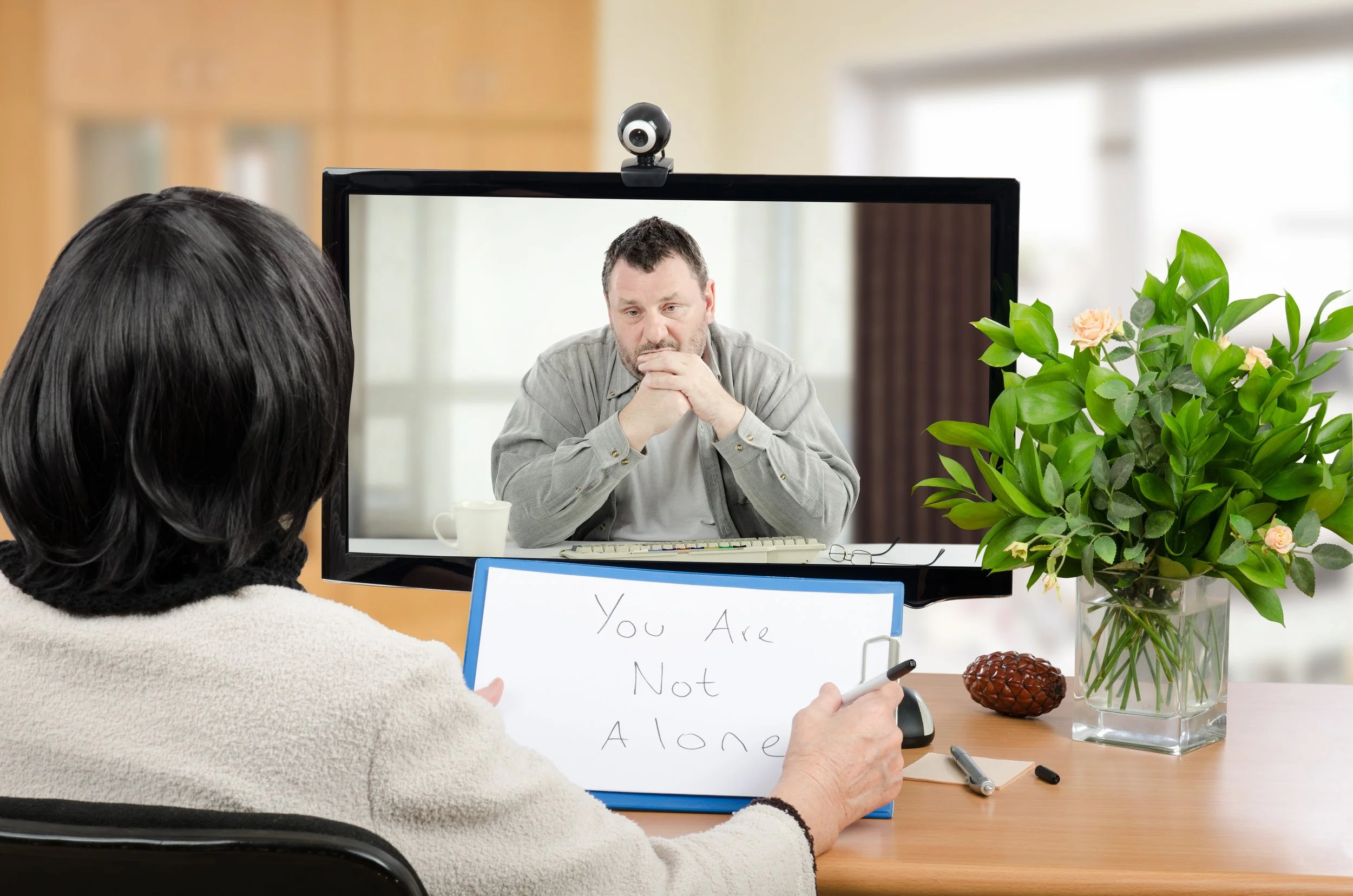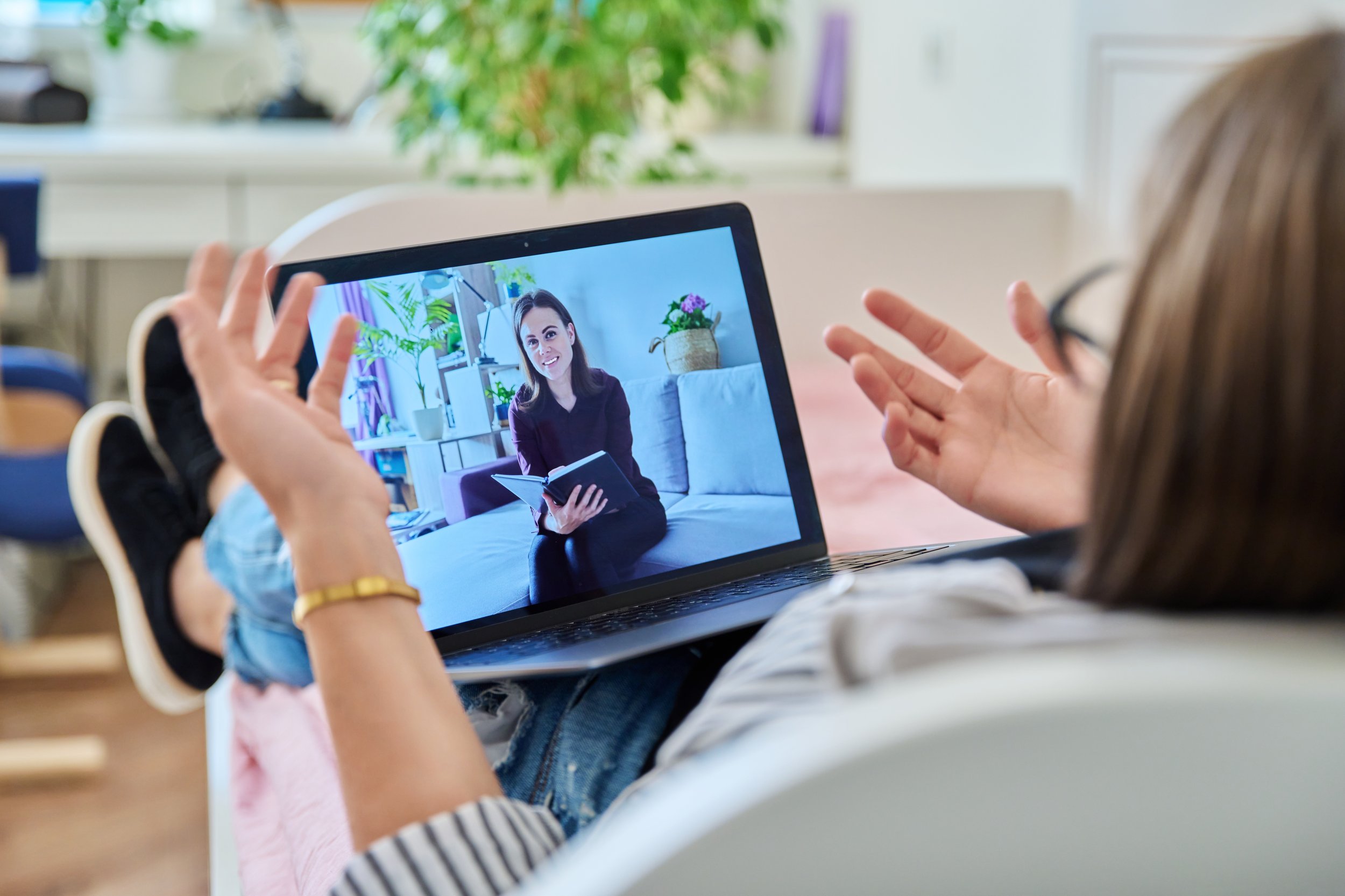Throughout the pandemic, each of us was forced to adjust fast to surviving with an unseen enemy while also attempting to comprehend how to protect ourselves through the adoption of different ways of life and different routines each day. This led to an increasing need for Digital counseling services (AKA Telehealth or Teletherapy).
Since COVID-19, more and more people are turning to therapy. You might be curious about how typical In-person therapy sessions differ from Virtual Therapy Sessions.
Here is everything you need to know about therapy and the perks of in-person and digital counseling. Then, you can choose which suits you best.
What is therapy?
Therapy is specialized treatment in which a single person, a couple, or a family meets with a qualified professional therapist to discuss the challenges and difficulties they are encountering. Therapy is private, without value judgments, and always under client-patient confidentiality.
People seeking counseling may have the chance to communicate their thoughts and feelings, validate those thoughts, and broaden their understanding of their experiences and the world around them.
People who seek counseling may find that it assists them in gaining insight into various difficulties. People will choose the intended results and goals for therapy with the assistance of their therapist, and they will work toward accomplishing these objectives.
Why Do You Need Therapy?
Individuals, families, and entire communities may all benefit tremendously from the guidance and support found in professional counseling services. The Counseling Center for Change assists people in coping with challenging aspects of life, including the passing of a beloved one, the dissolution of a marriage, the onset of a natural disaster, the pressures of academic life, and the loss of employment-to name but a few.
It offers strategies and perspectives that may utilize the management of mental health conditions such as Anxiety, Depression, ADHD, PTSD, and more. In the end, therapy helps people work through mental health issues and enables the ability to lead healthy and meaningful lives.
In-Person Therapy vs. Digital Telehealth Therapy
The following points can help you decide between Digital Telehealth Counseling and In-Person Counseling.
In-Person Therapy
The primary distinction between online and traditional face-to-face therapy is the mode of communication utilized. In-person sessions are those that take place in the workplace of the therapist, in which you and your therapist may communicate directly with one another. This makes it easier to understand body language and other forms of nonverbal communication.
Traditional therapy, sometimes known as talk therapy, is a form of mental health care that involves engaging in direct conversation with a trained professional therapist. Weekly sessions are generally scheduled for 30 minutes to 1 hour in a neutral environment.
Advantages of In-Person Counseling
The following are some of the reasons why you might find face-to-face counseling more appealing:
Trust: Trust is essential to the therapeutic connection, but it can be more challenging to establish this quality virtually.
Focus: Some people find that they are better able to concentrate at their therapist’s office, where they are free from the distractions of both their job and home.
Coverage Under Insurance: In-person treatment is most likely to be covered by insurance than its virtual counterpart, internet counseling. Regardless of the circumstances, it is critical to have a solid grasp of the insurance coverage & be conscious of any out-of-pocket expenses.
Absence of Dependence on Technology: When you go to therapy in person, you won't have to be concerned about how technology may impact your session.
It is also essential to remember that treating some mental health illnesses in a digital environment may not be possible. Therefore, getting immediate therapy for any new or complicated symptoms is important.
Is In-Person counseling right for you?
In-person treatment may be the best option for individuals with serious mental illness or those more likely to respond favorably in more personal settings. But, again, your choices and the situation’s specifics are the deciding factors here. You can go out of the house and interact with someone else when you see a counselor in person. It is possible to be surprised by how beneficial a change of environment may be.
It has been demonstrated that face-to-face and talk therapy are effective methods for assisting patients suffering from a range of mental diseases. It is helpful in the majority of situations, even more so than antidepressants by themselves. Before beginning or discontinuing any drug, you should always make an appointment with your primary care physician or psychiatrist. The severity of the patient’s mental health problem is inversely proportional to the likelihood that in-person therapy will be required.
You require a prompt answer when you find yourself in a precarious situation. However, you may only be able to hold out once you receive a text from the therapist. In addition, the mental health specialist may not be capable of determining how desperate you are simply by looking at you from a distance.
Digital Telehealth Counseling
Online counseling, like traditional therapy that takes place in person, is a mental health treatment service delivered through internet media such as mobile apps, conference video calls, email, text messages, or any other platform where a discussion can occur virtually. Online counseling is similar to traditional therapy that takes place in person.
Advantages of Digital Counseling
The use of online treatment has various benefits, including the following:
Convenience: Participate in treatment whenever and wherever you like.
Accessibility: People who cannot leave their houses or survive in distant places where it is difficult to receive treatment of adequate quality may discover that teletherapy is a perfect alternative.
Cost: The associated costs, such as gas or childcare, may be avoided when patients participate in online therapy.
Reduced social anxiety: People can engage in treatment in the comfort of their own homes, where they might feel more at ease addressing issues related to their mental health.
Many people prefer teletherapy for many reasons, including its accessibility and convenience. It is simple to take part in therapy no matter where you are as long as you have access to a phone, tablet or a computer. You are not required to skip your session even if you are going to be out of town (this is not true as they can only be seen in the state where they reside and where the therapist is licensed.)
People who are confined owing to COVID-19 cannot leave their homes or reside in areas with few treatment services. However, they can continue their therapy because of the availability of teletherapy, thanks to technological advancements.
People can also see counselors who don't reside within a reasonable driving distance when they use online therapy. The regulations governing licensing in each state are different, but in most situations, you will be able to get treatment from a practitioner who is registered in the state in which you currently reside.
Is Digital counseling right for you?
Digital counseling is an exceptionally efficient and effective solution to overcome some of these primary barriers. Individuals who participate in online therapy can speak with their therapist from any location, provided they have access to the internet.
People whose mental health illnesses are not severe may benefit significantly from Digital counseling, which has been demonstrated to be just as effective as traditional face-to-face therapy for treating various psychological issues.
Clients can conduct sessions with their therapists without ever having to leave the comfort of their homes when they get services over the internet. In addition, it is much less challenging to meet with the therapist online using your laptop and iPad than driving during rush hour, sitting in the waiting area, and then fighting more traffic on the way back home just after the session.
People who reside in distant areas or rural settings may need help gaining access to good quality mental health care. These patients, who otherwise would not have access to excellent therapists with a wide range of clinical expertise, can now obtain highly individualized treatment programs for their health thanks to the advent of virtual therapy.
In-person or digital therapy is a personal choice that can be planned together with your therapist. Patients new to therapy may consider a hybrid model treatment that includes a variety of in-person and digital to see which works best for them.
In some cases, both in-person and virtual therapy can be utilized depending on the treatment plan at different points in time during the therapy. Some therapists prefer to do the initial evaluation in person and if deemed appropriate, Telehealth sessions may follow. Some therapists do not provide Teletherapy and are strictly in-person. Be sure to ask your therapist, ideally before the first meeting so you can know what to expect and you can you plan accordingly.





